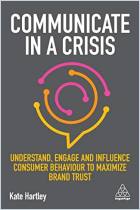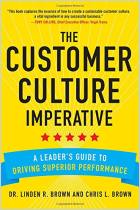
The Zombie Business Cure
How to Refocus Your Company’s Identity for More Authentic Communication
Recommendation
Many businesses act like “zombies” by behaving in ways that drive away customers. Like the will-less and speechless walking dead, they don’t care. They lack sensitivity and concern. They blunder and never consider the consequences of their actions. Communications professor Julie C. Lellis and user experience specialist Melissa Eggleston highlight the traits and behaviors that turn well-meaning companies into zombies. They explain how your institution can behave more “authentically, genuinely” and with “grace” to develop a self-awareness and a strong value-based “identity” – and to ward off dismissive, unpleasant behavior. Case studies make this cautionary manual easy to read and entertaining. getAbstract recommends it to those who want to bring their businesses alive for their customers – and to avoid zombies under any circumstances.
Summary
About the Authors
Julie C. Lellis, PhD, is an associate professor and associate department chair in the School of Communications at Elon University. Melissa Eggleston is a consultant to businesses, nonprofits and universities; she specializes in user experience and content strategy.













Comment on this summary